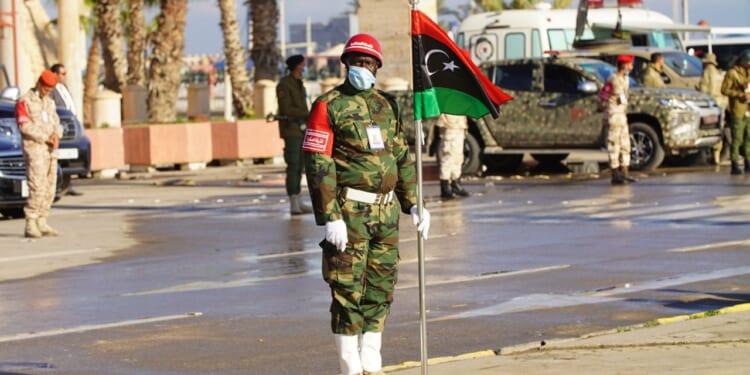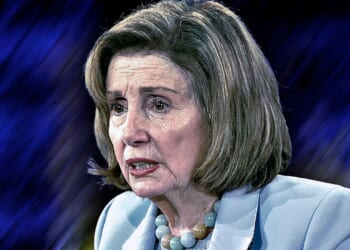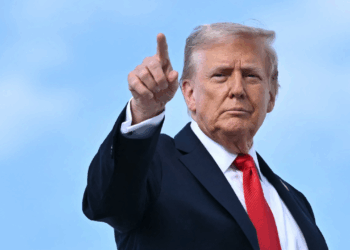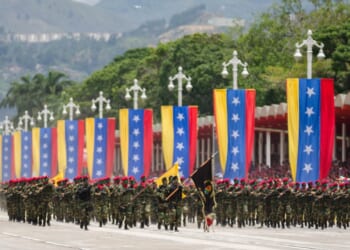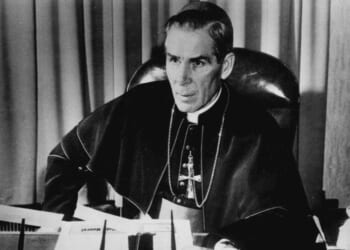Abdelkarim Mgeg’s bid for Libyan leadership raises slim hopes for a brighter future in a war-torn country.
Libya has long slipped down Washington’s list of priorities. Since the fall of Muammar Gaddafi in 2011, the country has been trapped in cycles of civil war, foreign interference, and institutional collapse. To many US policymakers, Libya looks intractable, a problem best left to Europeans. Yet, the candidacy of Abdelkarim Mgeg for prime minister has drawn attention in both Tripoli and Washington. His rise will not resolve Libya’s many crises overnight, but it reflects an effort to break with the patterns of militia rule and foreign manipulation that have defined the post-2011 era.
Unlike militia leaders and strongmen who dominate Libyan politics, Mgeg is a scientist with international standing. He is best known for his role in dismantling Libya’s nuclear weapons program in the early 2000s, at a time when Gaddafi was seeking rapprochement with the West. That process yielded Washington a rare nonproliferation success story, and Mgeg played a key role in delivering it through his technical expertise and political negotiation skills. The credibility he earned in that moment, particularly with US officials, remains an unusual and valuable asset.
Today, he is emerging as one of the leading candidates to head a new government and is increasingly seen in Washington as a potential figure capable of reconciling Libya’s fractured politics.
On his visit to the US capital this week, he met senior officials from across the political spectrum. This level of engagement suggests that Washington views him as credible, although not without acknowledging the many uncertainties that remain.
Libya’s challenges are immense. The country remains divided between General Khalifa Haftar’s Russian-backed forces in the east and the contested civilian authorities in Tripoli, supported by Turkey. Egypt and the UAE also back Haftar, while Europe’s overriding concern is stemming migration across the central Mediterranean.
This externalization of Libya’s crisis has hollowed out sovereignty and left ordinary Libyans caught between rival governments, competing militias, and foreign patrons. Years of conflict have devastated infrastructure, weakened state institutions, and created fertile ground for extremist groups across North Africa and the Sahel. Oil production remains volatile, vulnerable to blockades or sabotage. Migration flows from Libya to Europe fuel political tensions on the continent, threatening transatlantic unity at a time of heightened great-power competition.
The institutional weakness of the Libyan state is perhaps the greatest barrier to lasting stability. Ministries are fragmented, civil servants are poorly paid, and the judicial system lacks the authority to enforce accountability. Even if Mgeg were able to form a unity government, delivering basic services such as electricity, healthcare, and education would be an uphill struggle. Without visible improvements in daily life, public confidence in any new administration could quickly erode.
Another challenge lies in managing foreign interference. Russia, Turkey, Egypt, and the UAE have entrenched themselves militarily and economically, making Libya less a sovereign state than an arena of proxies. Dislodging these interests or balancing them in a way that preserves Libyan autonomy will be an enormous task. Mgeg’s international credibility may help him open channels of negotiation. Still, his ability to limit external actors will be constrained unless he can build strong domestic institutions and secure broad-based popular support.
Against this backdrop, Mgeg’s signals that he would seek to bring Haftar and his supporters into a civilian-led framework suggest a recognition that reconciliation, not exclusion, is the only sustainable path forward. Whether entrenched actors would accept such an arrangement remains uncertain. Haftar retains influence, but his age and health raise questions about his long-term role. Meanwhile, younger militia commanders and regional players may resist compromise if it threatens their power or resources.
Mgeg’s candidacy alone will not transform Libya. The political order is fragmented, external actors are deeply invested in the potential outcomes, and past attempts at power-sharing have often collapsed under the weight of spoilers. Mgeg will face immense obstacles in building a governing coalition, asserting civilian authority, and delivering tangible improvements in daily life. Without progress on these fronts, even a figure with international legitimacy risks being undermined by the same instability that consumed previous civilian leaders.
For Washington, the lesson is not to invest too heavily in a single leader but to remain engaged with Libya’s political process in ways that support institution-building and reconciliation. The United States has strategic interests in preventing extremist sanctuaries, stabilizing energy flows, and reducing migration pressures on Europe. Those interests are best served by promoting credible civilian leadership, free and fair elections, and limiting foreign interference.
Libya will not be rebuilt around one individual, but the emergence of Abdelkarim Mgeg illustrates that credible candidates with international ties still exist. His candidacy should be viewed neither as a panacea nor as irrelevant. Instead, it offers a potential starting point for a broader political settlement that Libya urgently needs to move beyond its ongoing civil war.
About the Author: Azeem Ibrahim
Dr. Azeem Ibrahim OBE is a Research Professor at the Strategic Studies Institute, US Army War College, Senior Director at the Newlines Institute for Strategy and Policy, and author of Authoritarian Century: Omens of a Post-Liberal Order (Hurst: 2023).
Image: Hussein Eddeb / Shutterstock.com.

